Switzerland by train: Dramatic, exhilarating and full of mystique
Kate Green travelled through Switzerland by train, and enjoyed a dramatic and exhilarating holiday.
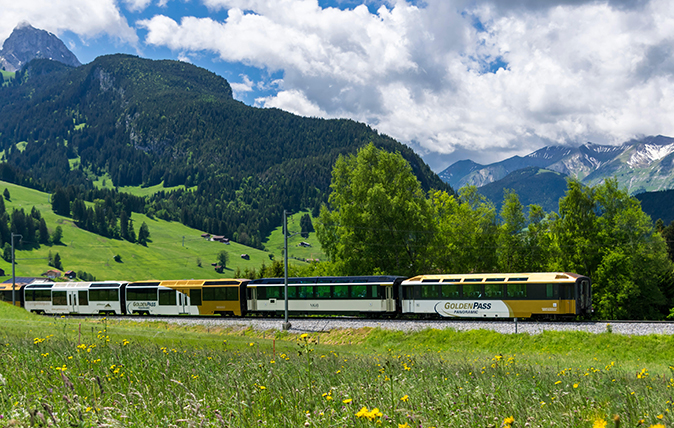

Switzerland is a country of surprisingly many parts. In Byron’s day, it was considered a wild place for a gap year and, although the country is now a byword for efficiency and discretion, its dramatic contrasts in landscape and language still make for an exhilarating holiday.
I went there to experience the Gotthard Panorama Express, a special five-hour journey from Lugano, in the Italian toe, to Lucerne. You set off, by train (at Bellinzona), from a sunny Mediterranean landscape of palm trees and Italianate architecture in the Italian-speaking canton of Ticino and end up hearing German spoken amid snow-capped mountains and wooden chalets drenched in geraniums.
The train goes through dramatic, deep mountain passes and the famous Gotthard tunnel, built with great ambition but at huge human cost in 1882 to link north and south Europe (a brand new road tunnel has brought Lugano and Zurich 45 minutes closer).
Then, the glorious boat journey up the length of Lake Lucerne weaves from shore to shore, picking up walkers from tiny lakeside jetties. Both are accompanied by interesting, non-intrusive commentary.
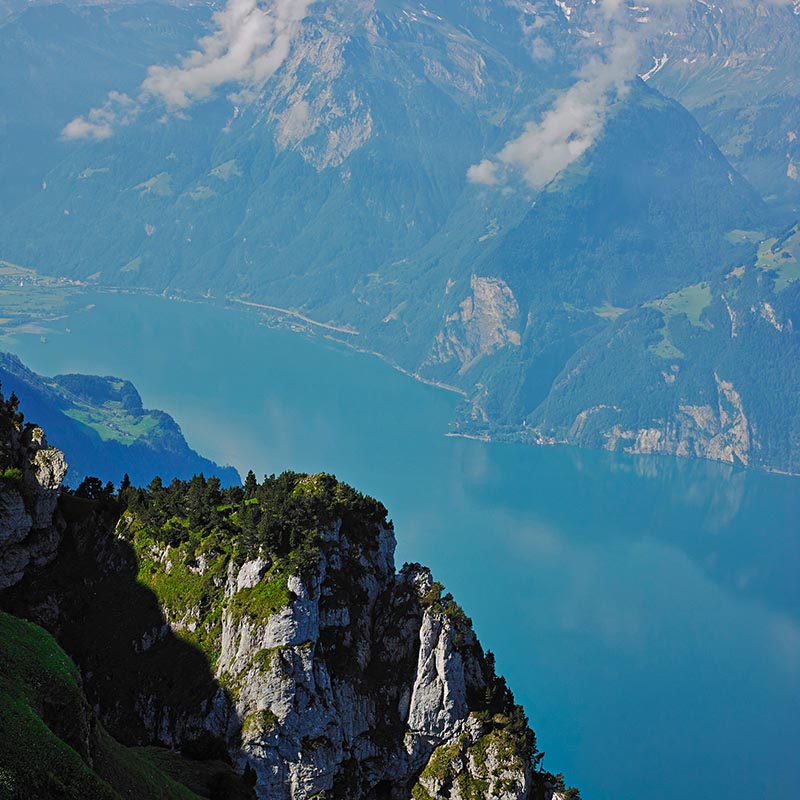
The train is the way to go with Switzerland – well, anywhere, surely, in this age of airport misery. I travelled seamlessly London-Paris-Lausanne-Gstaad before a slightly truncated Gstaad-Lucerne leg without a moment’s irritation or boredom, despite it taking two hours longer due to a bus ride around a landslide.
Staff are friendly, the air conditioning pleasant, the food more than edible and the views sublime. There’s an extra charge for the Gotthard, but a brilliant travel pass system covers not only trains, but buses, cable cars, boats, funiculars and museums as well – remember to keep your passport with you for ticket checks.
The panoramic train journey from French-speaking Montreux (near Lausanne) to German-speaking Gstaad may be best of the lot. And Gstaad, despite the expensive shops and famous, rich residents, does have real, local people going about their business of moving cows, making cheese and taking their children to school – not a fur coat or a diamante dog collar in sight.
Sign up for the Country Life Newsletter
Exquisite houses, the beauty of Nature, and how to get the most from your life, straight to your inbox.
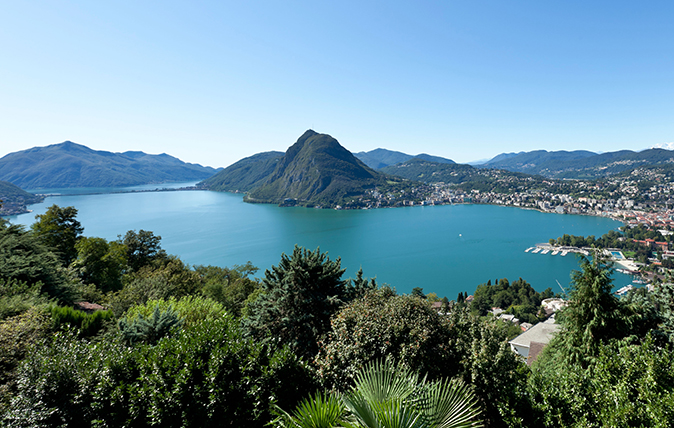
Gstaad boasts a treasure of a hotel, Le Grand Chalet, set high up the valley with soaring views from bedroom balconies, pool and dining terrace (the food is exquisite but expensive, served by humorous staff in national dress). Ask the ever-smiling Carole where the best walks are – soon, we were miles above civilisation, yomping through alpine pastures carpeted with orchids, anemones and gentians and high on views of the Les Diablerets glacier and beyond.
The elegant Villa Sassa Hotel Residence & Spa (below) in chic Lugano was something completely different, oozing Mediterranean film-star glamour beside the brooding waters of the lake.

For something more modest – and cooler air – there’s the charming, family-run Villa Carona high above the water in the pretty village of Carona where plant collector Arthur Scherrer oversaw the creation of an exotic ‘garden of wonders’, Parco San Grato.
My third berth, in Weggis, the village where Rachmaninov sought sanctuary, on the shores of Lake Lucerne, shadowed by surreal moonscape world of Mount Riga, was different again, with the feel of a gentle lakeside, seaside even, resort – in fact, the area is known as Switzerland’s ‘Riviera’.
As the train pulled away from Lucerne, towards Basel, Paris and London, the landscape suddenly seemed rather flat. Switzerland, in its many guises, still has the mystique.

Credit: Alamy
Did Mary Shelley really write Frankenstein?
Mary Shelley's Frankenstein: is it really Mary Shelley who deserves the credit?
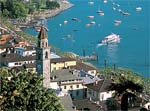
Guide to buying in Switzerland
Following restrictions on second home purchases in Switzerland's Canton Valais, Carla Passino heads South to Canton Ticino—and succumbs to its
-
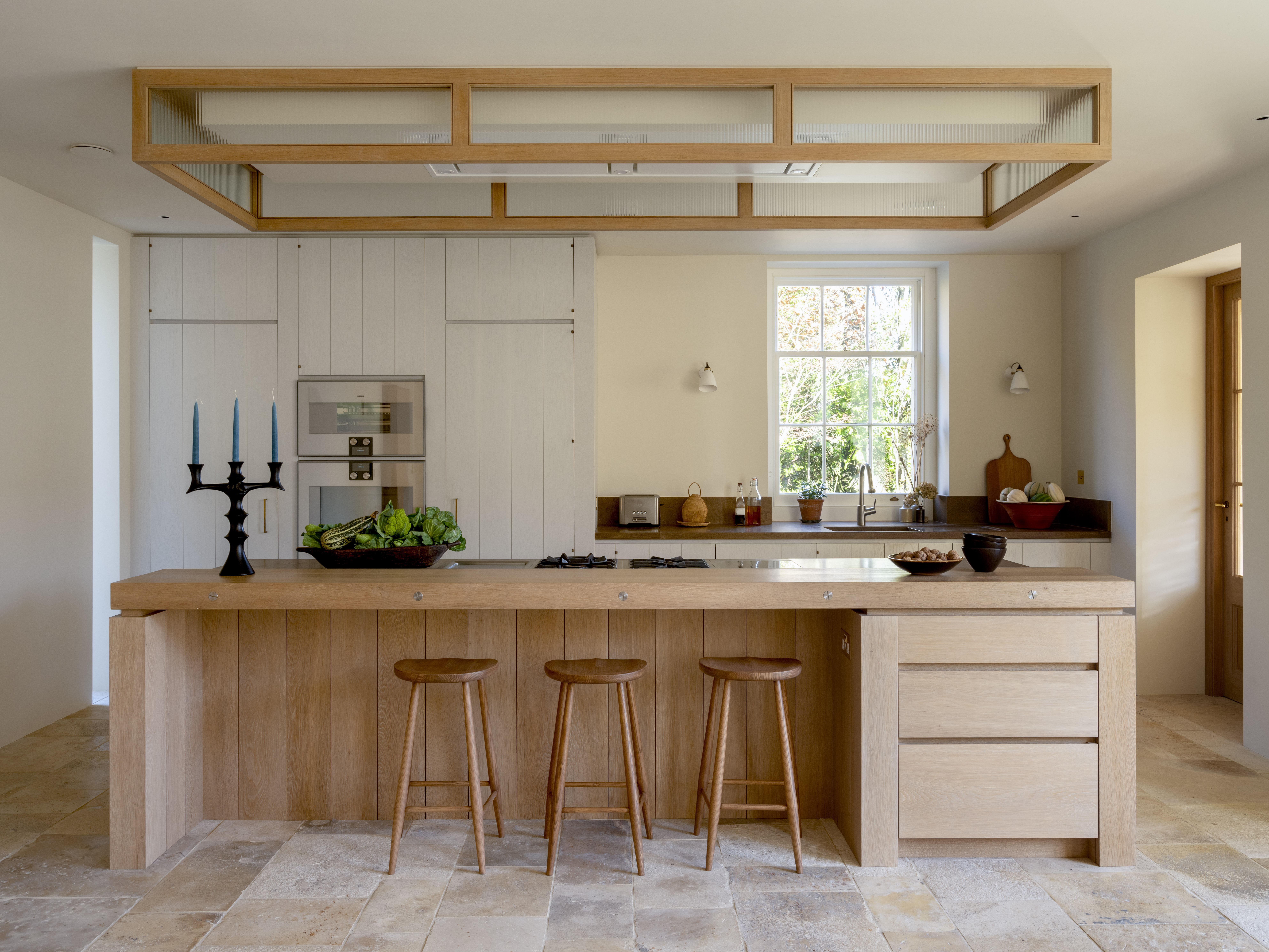 Designer's Room: A solid oak French kitchen that's been cleverly engineered to last
Designer's Room: A solid oak French kitchen that's been cleverly engineered to lastKitchen and joinery specialist Artichoke had several clever tricks to deal with the fact that natural wood expands and contracts.
By Amelia Thorpe
-
 Chocolate eggs, bunnies and the Resurrection: Country Life Quiz of the Day, April 18, 2025
Chocolate eggs, bunnies and the Resurrection: Country Life Quiz of the Day, April 18, 2025Friday's quiz is an Easter special.
By James Fisher